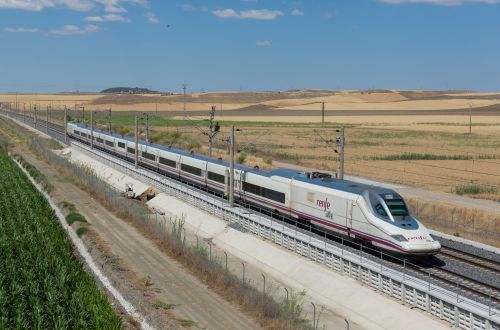Renfe was one of three bidders selected to negotiate access agreements to run services on Madrid - Barcelona – French border (Corridor 1); Madrid – Valencia/Alicante (Corridor 2), and Madrid - Seville/Málaga (Corridor 3) in November 2019. CNMC signed off 10-year contracts between infrastructure manager Adif AV and Ilsa, a consortium of Italian national operator Trenitalia and Spanish regional airline Air Nostrum, and Rielsfera, a subsidiary of French National Railways (SNCF), in April.
However, CNMC ruled on April 7 Adif AV and Renfe had not proven the existence of extraordinary reasons to extend the maximum permitted contract term of five years to the 10-year contract length requested.
Following a review, the authority confirmed on May 7 that the operator has provided additional evidence which satisfies these expectations.
Specifically this evidence details the necessary investment required in the fleet to meet the service capacity committed to Adif AV. CNMC says the initial information provided corresponded to Renfe’s overall plan for the provision of high-speed services in Spain and was not specific to the services and corridors included in the framework agreement. Renfe has also proven that operating the service will require special investments and that it will face risks from the pending amortisation of its rolling stock.
However, CNMC rejected Renfe’s argument that amortising its fleet due to the end of its monopoly of operation on the route as a reason to extend the contract and claims from Adif that extending the contract with Renfe was necessary to guarantee income for the infrastructure manager. In contrast, it says that liberalisation of the sector in other European countries has resulted in an increase in revenue for the infrastructure manager due to more services and passengers using the railway.
Under Package A of the agreement, Renfe will operate 70% of all high-speed services on three corridors: This equates to 48 daily services or three trains per hour per direction on Corridor 1, 32 daily services, or two trains per hour per direction on Corridor 2, and 48 daily services, or three trains per hour per direction on Corridor 3.
CNMC says the impact of Covid-19 pandemic does not yet warrant an extension of the terms of the framework agreements. However, it concedes that the effect of the pandemic might yet be taken into account in future modifications to the agreement without penalty to the operators.
Under the agreement, the operator is permitted to enter the market from December 14 provided they request the necessary paths from Adif AV by June 15. However, Ilsa has already announced that it does not plan to begin operating until January 2022, using the additional time to prepare its fleet of Frecciarossa 1000 high-speed trains and to organise sales, operating and maintenance facilities.

